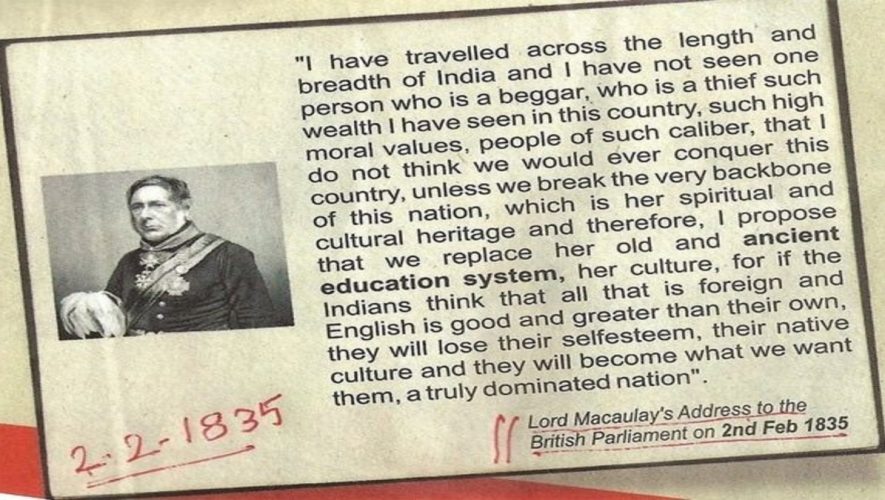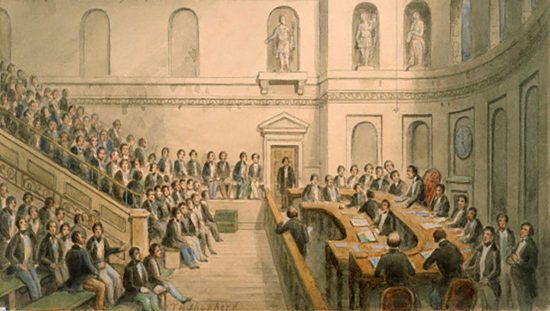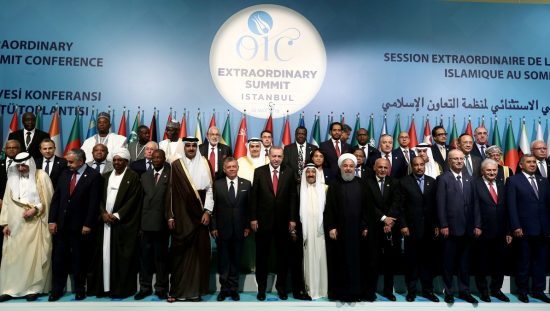As a president of General Committee of Public Instruction, Lord Macaulay wrote a minute on 2nd February 1835, where he made the conclusion regarding the controversy between Anglicists and Classicists. Lord Macaulay stressed the implementation of the English language as a medium of instruction through his minute. According to him, English was the best medium of instruction. He held that this would enable the emergence of a class of people in the Indian society, who would be well versed in English language, western ideology, taste and opinion. This class would serve as a medium of contact with the great mass of Indian people who were culturally different from the English. This class would also be the agents of change of the great Indian society.
By introducing the English language for the education of the Indian masses, Macaulay’s opinion was that the public mind of India may expand under the English system and through the English language; it may educate the people into a capacity for better government. In the minute, Macaulay wrote, ”We must at present do our best to form a class who may be interpreters between us and the millions whom we govern-a class of persons, Indian in blood and color, but English in tastes, in opinions, in morals and in intellects.” Thus, from this minute, Macaulay anglicized the education in India as a whole so as to get benefits in their business policy.
Downward Filtration Theory
Actually, the Government of the East India Company wanted to educate some great Indians for profits in their business through the Downward Filtration Theory. The downward filtration theory means that the education was provided to a small portion of the people, and through them, education was conveyed to the masses. Hence, through this theory, the minute did partiality by giving education to some favorable persons as they liked to engage them in their business policy.
In his minute, Macaulay criticized the oriental learning as “a single shelf of good European library was worth the whole native literature of India and Arabic”. Macaulay believed that English should be introduced because it is a language of the ruling class and also the familiarity has been gained by higher classes of Indians.
In fact, the contribution from Macaulay through his minute was appreciated as the torch bearer in the path of progress by some people of the higher classes in India and the Company. But Lord Macaulay was not free from some of the criticisms. Some people in India had blamed Lord Macaulay as Macaulay, took only the quick decision to promote the English language, not to be the torch bearer to create the desire for English education. Macaulay was also blamed by some Indians for his severe condemnation of oriental literature and religion.
Thus, in lieu of the British rule over India, Lord Macaulay’s Minute was accepted by Lord Bentinck, the Governor –General of India and passed the resolution to accept the English language as a medium of instruction for the Indian education system.
Key Notes:
- The Charter Act of 1813 made a State system of Education in India officially.
- This clause of Charter Act of 1813 compelled the East India Company to accept responsibility for the education of the Indian people by granting one lac rupees.
- Regarding the way of spending the money for education, there was a controversy between the anglicists and classicists in terms of aims of education, agencies of education, medium of instructions and methods.
- As a president of General Committee of Public Instruction, Lord Macaulay’s wrote a minute on 2nd February 1835, where he gave the conclusion regarding the controversy.
- Macaulay concluded the controversy by acquiring English language as a medium of instruction through his minute.
- By introducing the English language for the education of the Indian masses, Macaulay opinion was that the public mind of India may expand under the English system and through the English language it may educate the people into a capacity for better government.
- Macaulay developed the policy of Downward Filtration Theory and through it; he made bifurcation of partiality in giving education to the Indian masses.
- Some people of higher classes in India and the East India Company appreciated Macaulay as the torch bearer in the path of progress.
- Lord Macaulay submitted his minute to the Governor- General in Council where Lord William Bentinck was the Governor General of that Council.
- Lord William Bentinck passed the resolution of the Macaulay’s Minute on 7th of March 1813, where all the funds that were allotted for Indian education should be disbursed only in favor of English language.
Courtesy: KKHSOU
OTHER RELATED POSTS



